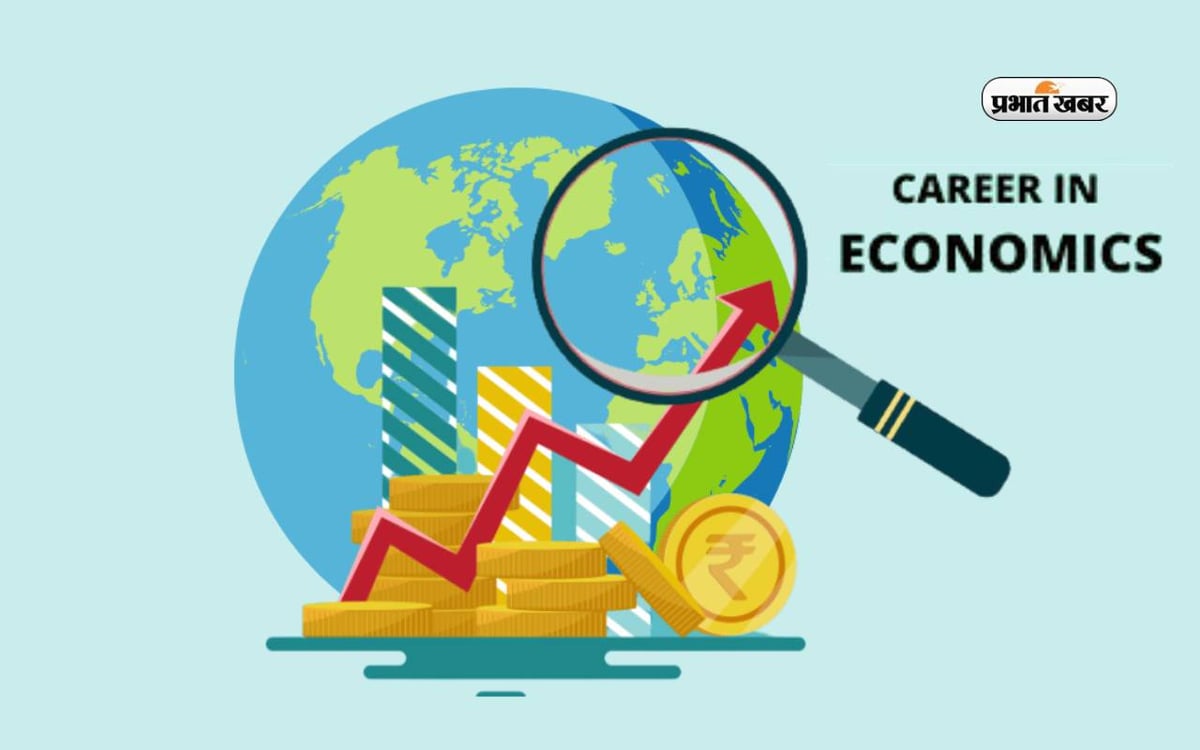Career in Economics: Economics is one of the most demanded subjects. India has a long history of providing the world with outstanding economists who have left their mark on the global landscape and instilled passion among students to pursue a career in economics. India’s first full-time Finance Minister Nirmala Sitharaman, who is presenting the budget for the sixth time today, has been a student of economics. A degree in Economics opens up various job opportunities in the financial market. Know how you can give height to your career with this subject…
Today, excellent opportunities are available in every field for those pursuing higher education in Economics. If you are interested in economic-social studies along with mathematics and statistics, then by choosing this subject you can enter a wonderful future.
Know, what is economics
As a subject, the relationship between economic development and social development, economic principles and systems, supply and demand, inflation, money supply are studied in economics. Economics is a branch of social science. Its basic function is to study how individuals, families, organizations and nations use their limited resources to maximize their benefits. Under this, production, distribution, exchange and consumption of goods and services is studied. There are two parts of economics – micro economics and macro economics. In micro economics, the economic behavior of individuals, families, firms etc. is studied to know which economic options people choose for expenditure and saving. Macroeconomics is related to the national or global economy. In this, the country’s gross domestic product, inflation rate, interest rate, import and export etc. are studied.
There are ways to move forward here
There are many career paths in Economics in which one can enter after BA in Economics. But, MA is necessary for a strong future. To progress in the academic field as a teacher or economist, it is necessary to pursue PhD after MA. Apart from this, there are many types of job opportunities available for those studying economics from government sector to many international institutions.
Government Sector: Union Public Service Commission (UPSC) conducts Indian Economic Service and Indian Statistical Service examinations on annual basis, in which graduate candidates in Economics can appear. Those who achieve success in these get the opportunity to work as officers in NITI Aayog, ministries and other departments of the Government of India.
banking sector : Many public sector banks appoint those who have completed Master’s degree in Economics as economists. Economists are also required in private banks. Economists generally work in the policy making/planning department of banks. Along with this, there are also opportunities for them in World Bank, Asian Development Bank, International Monetary Fund (IMF) etc.
International agencies: Many international bodies, including the International Labor Organization (ILO), United Nations Conference on Trade and Development (UNCTAD), United Nations Development Program (UNDP), United Nations Industrial Development Organization (UNIDO), require experts in economics.
Research Field: There are excellent research opportunities in Economics in Indian and foreign universities. There are diverse areas for research in it. Many institutes have been established to promote research in economics. Some major institutes are – Institute of Economic Growth, New Delhi. Indian Council for Social Sciences Research, New Delhi. National Council of Applied Economics Research, New Delhi. Center for Women’s Development Studies, New Delhi.
Some of the new areas are: There are excellent opportunities available for degree holders in Economics to progress in the fields of stock broking firms, mutual fund companies, economic analysis, data analytics, accounts, market research and analysis, sales.
Branch and Specialization
-
Development Economics: In this, measures to improve the economy of developing and underdeveloped countries are studied.
-
Applied Economics: In this, economic principles are employed in business principles.
-
Rural Economics: Agriculture, land use, rural wages, income disparity between village and city etc. are studied in this branch.
-
Behavioral Economics: It is related to aspects like economic options, impacts etc.
-
International Economics: This branch focuses on the study of goods and services trade and economic impact between two countries. At present this branch is very popular.
-
Econometrics: In this, data analysis tools are used to solve and analyze business and economic problems.
-
Labor Economics: This includes labor mobility, labor welfare and related matters.
Institutions whose courses are in demand
Economics is a traditional subject which is taught in institutions across the world including India. But, the courses of some institutes have very high popularity. Delhi School of Economics is included among such major institutions, from where BA and MA programs are run. Madras School of Economics offers MA courses in General Economics/Financial Economics/Environmental Economics. Other major institutes are – Jawaharlal Nehru University, Indian Statistical Institute, Kolkata, Gokhale Institute of Economics and Politics etc.

